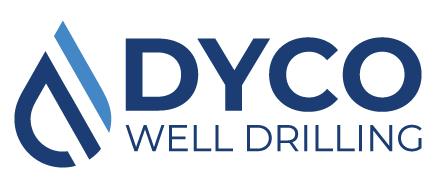Introducing Dyco Well Drilling, the game-changer in unleashing the power of underground water sources for sustainable living. Are you tired of relying solely on municipal water supply? Are you looking for a long-term, eco-friendly solution that can save you money and benefit the environment? Look no further. Dyco Well Drilling specializes in tapping into underground water sources, providing you with a self-sustaining water system like no other.
With our cutting-edge technology and expertise, we make use of advanced drilling techniques to access underground aquifers, ensuring a consistent and reliable source of water. Our team of skilled professionals will guide you through the entire process, from site evaluation and drilling to installation and maintenance, ensuring seamless integration into your daily life.
By harnessing the power of groundwater, you not only reduce your reliance on external water sources but also contribute to environmental conservation. Imagine the possibilities of having an independent water supply that is renewable, efficient, and cost-effective.
Experience the freedom and sustainability of underground water sources with Dyco Well Drilling. Revolutionize your living, one well at a time.
Importance of Sustainable Living and Water Conservation
Sustainable living is becoming increasingly important in today’s world, as we face growing concerns about the depletion of natural resources and the impact of human activities on the environment. Water, being one of the most essential resources for life, plays a crucial role in sustainable living. Conserving water and finding alternative sources are key steps towards a more sustainable future.
Dyco Well Drilling offers a solution that addresses both the need for water conservation and sustainable living. By tapping into underground water sources, we can reduce our reliance on municipal water supply, which is often treated with chemicals and consumes a significant amount of energy for transportation. Additionally, underground water sources are replenished naturally, making them a renewable and environmentally friendly option.
What is Well Drilling and How It Works
Well drilling is the process of drilling a hole in the ground to access underground water sources, known as aquifers. Aquifers are porous rock formations that hold vast amounts of water beneath the Earth’s surface. Well drilling involves using specialized equipment to penetrate the ground and reach these underground water sources.
The first step in well drilling is site evaluation. Our team will assess the geology of your area to determine the best location for drilling. Factors such as soil composition, water table depth, and proximity to potential contaminants are taken into account to ensure the sustainability and safety of the well.
Once the site has been evaluated, the drilling process begins. High-powered drilling equipment is used to create a borehole, which serves as a pathway to the underground water source. The borehole is lined with casing to prevent collapse and contamination. As the drilling progresses, water may be encountered, indicating the presence of an aquifer. Once the desired depth is reached, the well is completed with a wellhead and pump system for water extraction.
Benefits of Well Drilling for Sustainable Living
Well drilling offers numerous benefits for sustainable living. Firstly, it provides a self-sustaining water supply that is independent of external sources. This means that even during water shortages or disruptions, you can still have access to a reliable source of water. It also eliminates the need for costly water bills, saving you money in the long run.
Furthermore, well water is often of high quality, as it is naturally filtered through layers of rock and soil. This means that you can enjoy clean and fresh water without the need for additional treatment or filtration. It also reduces the reliance on chemical-laden municipal water, promoting better health and well-being.
Another benefit of well drilling is the reduction in environmental impact. By tapping into underground water sources, you decrease the strain on surface water bodies such as rivers and lakes, which are often overexploited. This helps to preserve these valuable ecosystems and protect aquatic life. Additionally, well water systems are energy-efficient, as they do not require extensive pumping and treatment processes.
Factors to Consider Before Drilling a Well
Before embarking on a well drilling project, there are several factors that need to be considered. These include geological considerations, legal requirements, and budgetary constraints.
Geological considerations involve evaluating the soil composition, rock formations, and water table depth in your area. This information helps determine the feasibility of drilling and the potential yield of the well. It is important to consult with professionals, such as those at Dyco Well Drilling, to assess the geology of your site and ensure a successful drilling project.
Legal requirements also play a crucial role in well drilling. Depending on your location, there may be permits and regulations that need to be followed. It is essential to research and comply with these requirements to avoid any legal issues or complications.
Budgetary constraints should also be taken into account. Well drilling can be a significant investment, but it is important to consider the long-term savings and benefits. Consulting with professionals can help provide a clear understanding of the costs involved and assist in budget planning.
The Process of Well Drilling
The process of well drilling involves several steps, each crucial in ensuring a successful and sustainable water supply. Here is an overview of the typical well drilling process:
- Site Evaluation: The first step is to evaluate the site to determine its suitability for drilling. This involves assessing the geology, water table depth, and potential risks or contaminants in the area.
- Permits and Legal Requirements: Before drilling can commence, any necessary permits and legal requirements must be obtained and complied with. This ensures that the drilling project is carried out in accordance with local regulations.
- Drilling: Once the site has been evaluated and the necessary permits obtained, drilling can begin. High-powered drilling equipment is used to penetrate the ground and create a borehole. The drilling process continues until the desired depth is reached.
- Well Completion: Once the desired depth is reached, the well is completed with a wellhead and pump system. The wellhead provides a secure and controlled access point to the well, while the pump system allows for water extraction.
- Water Testing: After the well is completed, water samples are typically collected and sent for testing to ensure its quality and safety. This step is crucial in identifying any potential contaminants or issues that may need to be addressed.
- Maintenance and Management: Regular maintenance and management of the well water system are essential to ensure its longevity and optimal performance. This includes periodic inspections, pump maintenance, and water quality monitoring.
Common Challenges in Well Drilling and How to Overcome Them
While well drilling offers numerous benefits, it is not without its challenges. Here are some common challenges that may arise during the drilling process and how to overcome them:
- Insufficient Water Supply: In some cases, the underground water source may not yield enough water to meet your needs. This can be addressed by conducting a thorough site evaluation to identify areas with higher water yield potential.
- Water Contamination: Contamination of well water can occur due to various factors, such as nearby septic systems or industrial activities. Regular water testing and monitoring can help identify and address any contamination issues.
- Maintenance and Repairs: Well water systems require regular maintenance and occasional repairs. It is important to have a maintenance plan in place and to address any issues promptly to ensure the longevity and optimal performance of the system.
- Pump Failure: Pump failure is a common issue in well water systems. Regular inspections and maintenance can help identify potential pump issues before they lead to failure. It is also important to have a backup plan in place in case of pump failure.
By being aware of these challenges and working with experienced professionals, such as those at Dyco Well Drilling, you can overcome these obstacles and enjoy the benefits of a sustainable water supply.
Maintenance and Management of Well Water Systems
Regular maintenance and management are essential in ensuring the longevity and optimal performance of well water systems. Here are some key maintenance practices to consider:
- Periodic Inspections: Regular inspections of the well and wellhead are important to identify any potential issues or signs of deterioration. This can include checking for leaks, corrosion, or any damage to the casing or wellhead.
- Pump Maintenance: The pump is a critical component of the well water system and should be regularly inspected and maintained. This may involve cleaning the pump, checking for proper functioning, and replacing any worn-out parts.
- Water Quality Monitoring: Regular water testing and monitoring are crucial to ensure the safety and quality of the well water. This can be done by collecting water samples and sending them for analysis to identify any potential contaminants or issues.
- Well Cleaning: Over time, wells may accumulate sediment or mineral deposits, which can affect water flow and quality. Periodic well cleaning can help remove these deposits and maintain optimal water flow.
- Record Keeping: Keeping a record of maintenance activities, water testing results, and any repairs or modifications is important for future reference. This can help track the performance of the well water system and identify any patterns or trends.
By following these maintenance practices and working with professionals, you can ensure the longevity and optimal performance of your well water system.
Case Studies: Successful Examples of Well Drilling for Sustainable Living
To illustrate the benefits and success of well drilling for sustainable living, let’s explore two case studies of individuals who have embraced this innovative approach:
- The Johnson Family: The Johnson family, residing in a rural area, decided to invest in well drilling to reduce their reliance on municipal water and lower their water bills. By working with Dyco Well Drilling, they were able to tap into an underground aquifer and install a well water system on their property. Not only did this provide them with a consistent and reliable water supply, but it also allowed them to irrigate their garden and reduce their environmental footprint.
- The Greenfield Community: The Greenfield community, a group of environmentally conscious individuals, collaborated to drill a communal well for their housing development. By pooling their resources and working together, they were able to access a large underground water source and establish a self-sustaining water system for the entire community. This not only reduced their dependence on external water sources but also fostered a sense of community and shared responsibility for environmental conservation.
These case studies highlight the transformative power of well drilling in enabling sustainable living and showcasing the benefits of underground water sources.
Conclusion: Harnessing the Power of Underground Water Sources for a Sustainable Future
In conclusion, Dyco Well Drilling offers a revolutionary solution for sustainable living by tapping into underground water sources. By harnessing the power of groundwater, you can reduce your reliance on external water sources, contribute to environmental conservation, and enjoy the benefits of a self-sustaining water system.
From site evaluation and drilling to installation and maintenance, Dyco Well Drilling provides comprehensive services to ensure a seamless integration of well water systems into your daily life. By working with experienced professionals and considering key factors such as geological considerations, legal requirements, and budgetary constraints, you can embark on a successful well drilling project.
With regular maintenance and management, your well water system can provide you with a reliable and sustainable water supply for years to come. Embrace the freedom and sustainability of underground water sources with Dyco Well Drilling and revolutionize your living, one well at a time.

